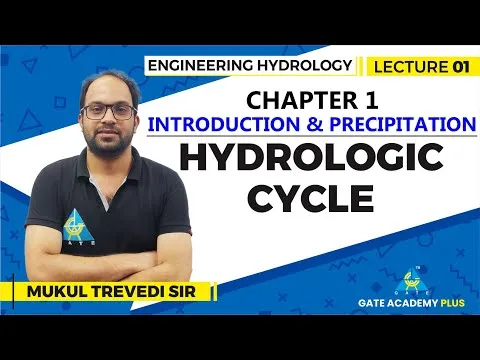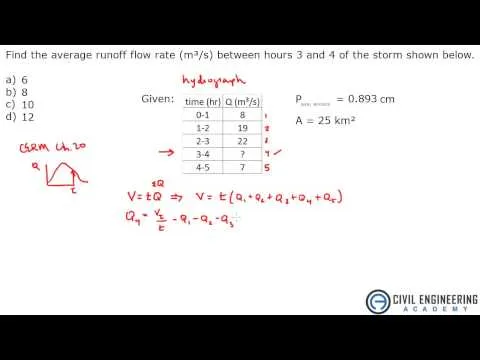
Lecture 01 Chapter 01 Hydrologic cycle Engineering Hydrology 
Looking to kickstart your engineering career? Look no further than GATE Academy Plus! Led by the renowned Mr. Umesh Dhande, this online course offers free digital resources to help you excel in your B.Tech/B.E. courses. With a wide range of subjects covered, including Analog Electronics, Fluid Mechanics, and Thermodynamics, you'll have all the tools you need to succeed. Don't miss out on this opportunity - visit our Facebook page for more information and get ready to shape your future! #GATE_ACADEMY_PLUS #Gate_Preparation ▼
ADVERTISEMENT
Course Feature
![]() Cost:
Cost:
Free
![]() Provider:
Provider:
Youtube
![]() Certificate:
Certificate:
No Information
![]() Language:
Language:
English
![]() Start Date:
Start Date:
2020-10-15 00:00:00
Course Overview
❗The content presented here is sourced directly from Youtube platform. For comprehensive course details, including enrollment information, simply click on the 'Go to class' link on our website.
Updated in [September 26th, 2023]
We considered the value of this course from many aspects, and finally summarized it for you from two aspects: skills and knowledge, and the people who benefit from it:
(Please note that our content is optimized through artificial intelligence tools and carefully reviewed by our editorial staff.)
What skills and knowledge will you acquire during this course?During this course on Engineering Hydrology, the learner will acquire the following skills and knowledge:
1. Understanding of the hydrologic cycle: The learner will gain a comprehensive understanding of the hydrologic cycle, including the processes of evaporation, precipitation, infiltration, runoff, and groundwater flow.
2. Quantification of hydrologic processes: The course will teach the learner how to quantify various hydrologic processes, such as rainfall, evapotranspiration, and streamflow, using mathematical models and techniques.
3. Analysis of hydrologic data: The learner will learn how to analyze hydrologic data, including rainfall data, streamflow data, and groundwater data, using statistical methods and hydrologic models.
4. Estimation of water resources: The course will cover techniques for estimating water resources, including methods for estimating rainfall, evapotranspiration, and runoff, which are essential for water resource planning and management.
5. Design of hydraulic structures: The learner will acquire knowledge and skills related to the design of hydraulic structures, such as dams, reservoirs, and channels, considering the hydrologic characteristics of the catchment area.
6. Flood forecasting and management: The course will cover techniques for flood forecasting and management, including the use of hydrologic models and flood control measures to mitigate the impacts of floods.
7. Water resource planning and management: The learner will gain an understanding of water resource planning and management principles, including the assessment of water availability, demand estimation, and allocation strategies.
8. Environmental considerations: The course will emphasize the importance of considering environmental factors in hydrologic studies, such as the impact of land use changes on hydrologic processes and the assessment of water quality.
Who will benefit from this course?
Engineering students pursuing B.Tech/B.E. courses will benefit from this course on Engineering Hydrology. Specifically, students studying civil engineering or environmental engineering will find this course relevant to their field of study. Professionals working in the field of water resources management, hydrological modeling, and flood forecasting will also benefit from this course.
Course Provider

Provider Youtube's Stats at AZClass
Discussion and Reviews
0.0 (Based on 0 reviews)
Explore Similar Online Courses

Live Session 1 IP Addressing and Subnetting

Project Scheduling

Python for Informatics: Exploring Information

Social Network Analysis

Introduction to Systematic Review and Meta-Analysis

The Analytics Edge

DCO042 - Python For Informatics

Causal Diagrams: Draw Your Assumptions Before Your Conclusions

Whole genome sequencing of bacterial genomes - tools and applications

Water Resources - Hydrograph Flow Rate in Hydrology

Hydrology: TSPSC - CIVIL - AEE Polytechnic Lecturer Important Concepts & Questions ACE Online


Start your review of Lecture 01 Chapter 01 Hydrologic cycle Engineering Hydrology